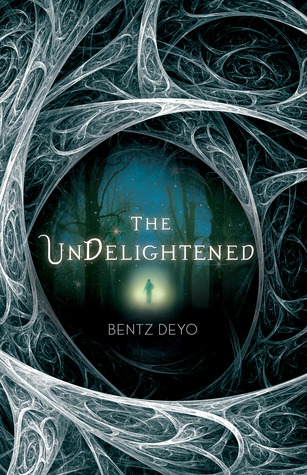The UnDelightened is an enjoyable romp marred by clichés and lazy settings.
I like the UnDelightened. It’s quick enough as a read, it’s enjoyable, it’s fun.
It has major, but not insurmountable issues. The issues don’t make it a worthless read. Rather, I can only hope the author, Mr. Deyo, strives for something better during the next iteration of the series.
The Synopsis
There’s a secret war of good vs. evil going on in the world, unbeknownst to us unmagical people. Both good and evil have headquarters and both are waiting for, in the words of Depeche Mode, their own personal jesus(es).
The Issues
1. The way women are treated in the book bothers me. While I’m not a believer in the Bechdel Test (for a whole variety of reasons, the least of which is the treating of gender as a binary system) I do believe that women should not only be typecast as either evil bitches, if one will excuse the foul language (that accurately describes an archetype) and the virginal (naive) angels.
Women, like men, are human beings. (There I am, using binary gender language. Shame on me.) They do not solely fall into archetypes. However, the only two semi-main female characters fall into those two archetypes.
Please, Mr. Deyo, write more believable members of the just-as-fair gender(s).
2. Second comes the portrayal of evil.
Mr. Deyo takes the easy, boring, clichéd and lazy way of pitting good against evil. I don’t know if this is a by-product of his writing for the so-called young adult demographic/genre or for some other, more diabolical (possibly religious) reason.
The issue of the portrayal of good versus evil is linked with the above issue of the treatment of women.
The evil leader in the UnDelightened smells like garbage. He revels in the stench. He lights garbage-scented candles. Really? I think evil, or “badness,” can be more nuanced than smelling like garbage, and liking the stench. To be fair, a lot of the portrayals of evil have the evil enjoying luxuries, such as nice perfumes, aged liquor and nice cars.
Please, allow a digression to look at forms of “evil” or at least enemies, from science fiction, starting with Star Trek: The Borg, which wish to assimilate everything. The Romulans, which are driven largely by emotion. From Star Wars: The Empire which is, as the name suggests, an empire, with all of its attendant need for control. Starship Troopers: Bugs protecting their homeland. The governments in: 1984, The Giver, The Hunger Games, Judge Dredd: all are governments seeking to control the populace. Battlestar Galactica: Cylons are waging war, arguably/partially, to preserve themselves. There’re also a lot of revenge issues going on, and revenge masquerading as justice.
Other evils, which are far less plausible, come to us from the likes of Dr. Who and, even better, Buffy the Vampire Slayer, where every evil wants to bring about the apocalypse just because.
The evil side in UnDelightened wants everyone to kill everyone else, which seems much less plausible and much more Buffy-esque, much more, we’re in a universe that does evil things for the sake of doing evil things. While this might be plausible from one or two characters (serial killers) it does not hold water for an entire organization. The suspension of disbelief extended to the Buffy universe, with its demons and apocalypses for the sake of power, or to regain control of other realms, does not get extended here.
Mr. Deyo alludes to something greater than the universe he has created, a world in which two sides are actively looking for their respective messiahs to come and end the war and let one side or the other win, breaking the eternal stalemate. This could be interesting, especially because it implies the greater power is neither good or evil but a mere capricious force, setting up binary games for the sake of amusement.
However, it has yet to be shown that there is any real depth or anything of interest in the world Mr. Deyo has created.
I look forward to reading the next installment in this trilogy and I sincerely hope the next installment is more nuanced and complex. Plus, the better treatment of female characters would be nice.
This book was received, free of charge, from the Goodreads First Reads program.
